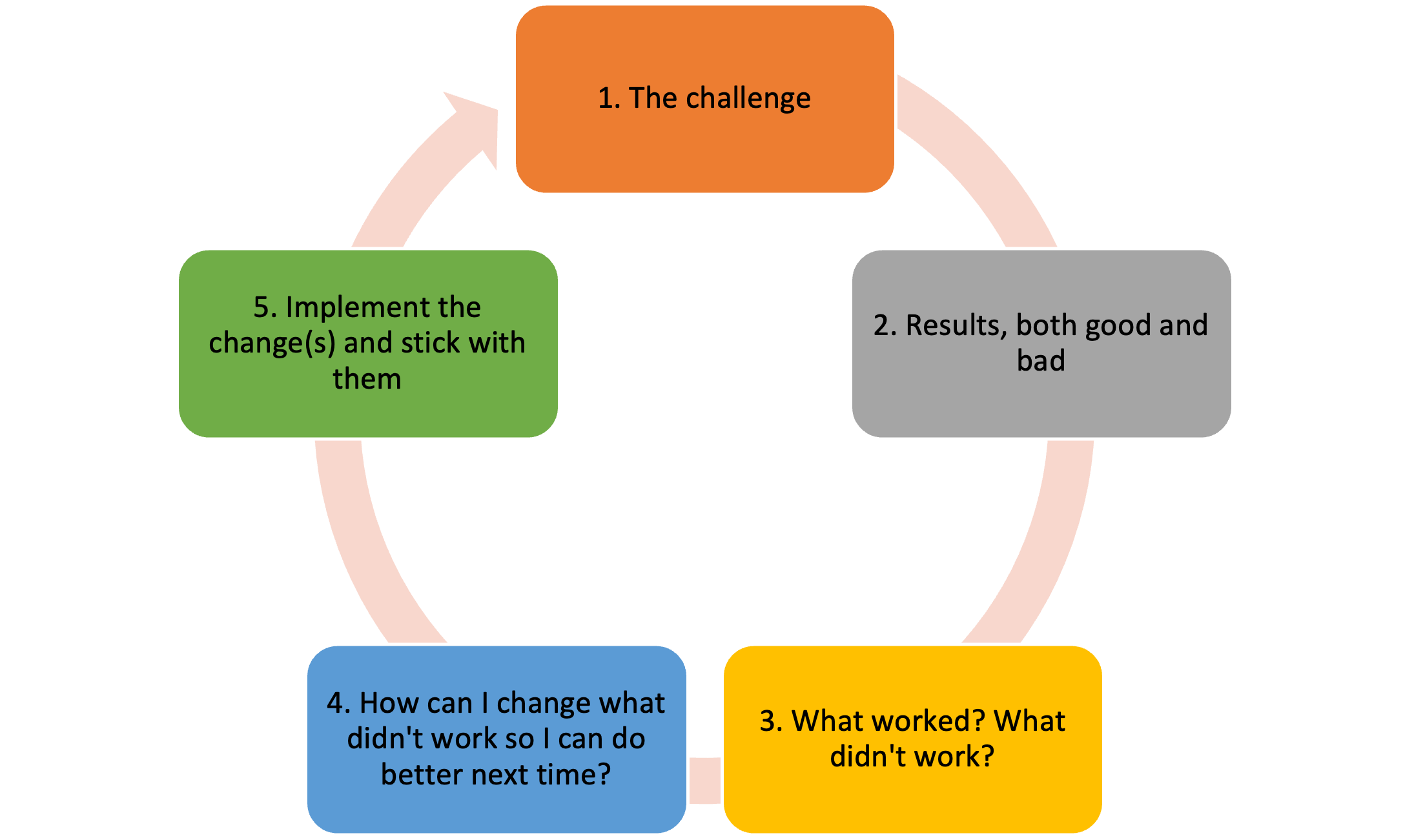As students, we constantly face challenges that compel us to adapt and innovate to succeed. Challenges come in many forms, whether they be exams, group projects, or just living on your own for the first time. There is an emphasis on the importance of the result, and unfortunately, a lack of discussion of the inevitable challenges and failures that occurred in the pursuit of success.
What happens when you don’t meet a goal or standard that’s set?
Let’s say you performed badly on a midterm exam. Naturally, you’ll feel disappointed, upset—and maybe discouraged. Clearly, something didn’t work, but what is that something? It is extremely important to identify this something because you need to change the cause of the failure so you will perform better next time. Performing the same set of actions that didn’t work the first time around will guarantee little or no improvement, let alone success. This process of reflection and change to better yourself is a lifelong experience that applies everywhere in life.

How do you not let these challenges and failures get in the way of you achieving your goals?
A baby learning how to walk will fall countless times but will pick themselves up and keep trying until they can walk and eventually run. The process of learning is filled with unlimited falls, some bigger than others; but just like babies learning to walk, so long as you keep reflecting and tweaking your approach to improve the next time, you will eventually succeed. Setting mini-goals for yourself will help you measure your progress, and make success feel more achievable. When receiving both positive and negative results, your mini-goals can shift with your self-reflection of what you need to change and what you want to achieve. At the end of the day, it’s important to remember that the road to success is lined with failure, but the difference between those who achieve success and those who are stuck at failure is reflection, adaptation, and perseverance.